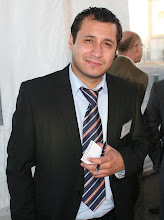"One laptop per child" founder Nicholas Negroponte speaks at OAS
The possibility of every child having a laptop computer, as a way to help bridge the digital divide between developed and developing countries, was the focus today of the fourteenth conference in the Lecture Series of the Americas at the Organization of American States (OAS).
 Nicholas Negroponte, founder and Chairman of the non-profit organization “One Laptop Per Child,” shared his vision and his efforts to revolutionize education worldwide through the development of low-cost computers.
Nicholas Negroponte, founder and Chairman of the non-profit organization “One Laptop Per Child,” shared his vision and his efforts to revolutionize education worldwide through the development of low-cost computers.
In introducing the topic to representatives of the 34 OAS member states and via the Internet to an audience throughout the hemisphere, OAS Secretary General Jose Miguel Insulza reiterated the central theme of the recent OAS General Assembly in the Dominican Republic: “Good Governance and Development in the Knowledge-Based Society.” He noted that information and communication technologies are “crucial to strengthening good governance and the promotion and protection of human rights”.
Insulza underscored the commitment expressed by the foreign ministers to “work intensely to ensure that every person in the Americas, in particular those in situations of vulnerability and with special needs, may participate in the benefits generated by the knowledge-based society.” The “One Laptop per Child” initiative “is precisely addressing this need and reducing the digital divide” between developed and underdeveloped countries, added the Secretary General.
Negroponte, who is currently on leave from the Massachusetts Institute of Technology, explained how the laptops—which will be produced on a large scale at a cost of around $100—will be used by children throughout the Americas and the world, improving education and eventually aiding economic development. “Perhaps the biggest thing the $100 laptop will do on this planet is to change education,” said Negroponte, who described how children who have never even seen computers tend to learn quickly and intuitively how to use them. In a slide presentation, he explained how the efficient, weatherproof computers he plans to distribute are operated with a manual crank and capable of creating wireless networks in remote regions.
Several OAS ambassadors commented or asked questions after the presentation. The Ambassador of Belize, Lisa Shoman, stressed that “the digital divide will remain so long as it is not affordable to all of our children to be able to access information technology. What you are offering,” she told Negroponte, “is nothing less than the tools to be able to bridge that digital divide.” The Ambassador added that the political commitment exists at the OAS to become involved in this effort, reiterating that “we will find a way to work with you” to help make this program a reality.
Created by the OAS Permanent Council to promote democratic principles and values in the countries of the hemisphere, the Lecture Series of the Americas invites internationally renowned speakers to address key hemispheric agenda issues. The conferences are being held thanks to a financial contribution from Peru’s San Martin de Porres University.
 Nicholas Negroponte, founder and Chairman of the non-profit organization “One Laptop Per Child,” shared his vision and his efforts to revolutionize education worldwide through the development of low-cost computers.
Nicholas Negroponte, founder and Chairman of the non-profit organization “One Laptop Per Child,” shared his vision and his efforts to revolutionize education worldwide through the development of low-cost computers. In introducing the topic to representatives of the 34 OAS member states and via the Internet to an audience throughout the hemisphere, OAS Secretary General Jose Miguel Insulza reiterated the central theme of the recent OAS General Assembly in the Dominican Republic: “Good Governance and Development in the Knowledge-Based Society.” He noted that information and communication technologies are “crucial to strengthening good governance and the promotion and protection of human rights”.
Insulza underscored the commitment expressed by the foreign ministers to “work intensely to ensure that every person in the Americas, in particular those in situations of vulnerability and with special needs, may participate in the benefits generated by the knowledge-based society.” The “One Laptop per Child” initiative “is precisely addressing this need and reducing the digital divide” between developed and underdeveloped countries, added the Secretary General.
Negroponte, who is currently on leave from the Massachusetts Institute of Technology, explained how the laptops—which will be produced on a large scale at a cost of around $100—will be used by children throughout the Americas and the world, improving education and eventually aiding economic development. “Perhaps the biggest thing the $100 laptop will do on this planet is to change education,” said Negroponte, who described how children who have never even seen computers tend to learn quickly and intuitively how to use them. In a slide presentation, he explained how the efficient, weatherproof computers he plans to distribute are operated with a manual crank and capable of creating wireless networks in remote regions.
Several OAS ambassadors commented or asked questions after the presentation. The Ambassador of Belize, Lisa Shoman, stressed that “the digital divide will remain so long as it is not affordable to all of our children to be able to access information technology. What you are offering,” she told Negroponte, “is nothing less than the tools to be able to bridge that digital divide.” The Ambassador added that the political commitment exists at the OAS to become involved in this effort, reiterating that “we will find a way to work with you” to help make this program a reality.
Created by the OAS Permanent Council to promote democratic principles and values in the countries of the hemisphere, the Lecture Series of the Americas invites internationally renowned speakers to address key hemispheric agenda issues. The conferences are being held thanks to a financial contribution from Peru’s San Martin de Porres University.


0 Comments:
Post a Comment
<< Home